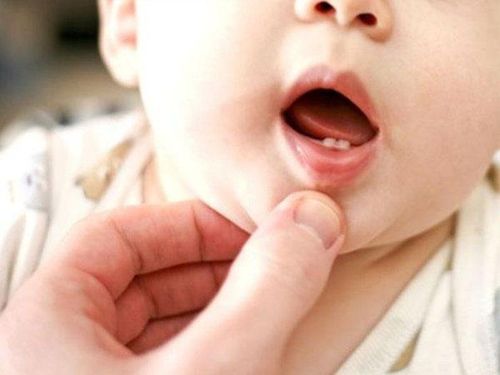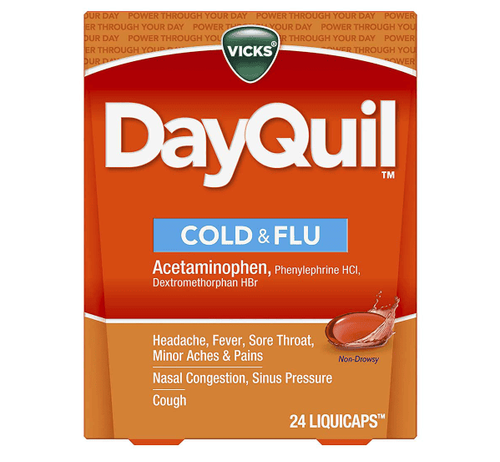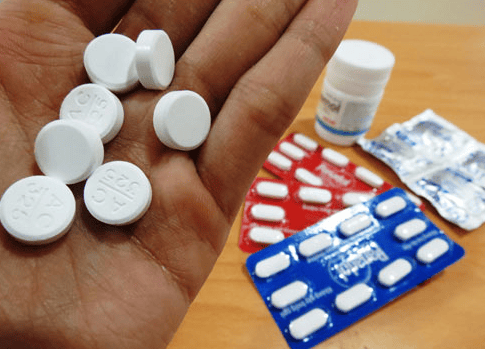This is an automatically translated article.
Babies grow their first teeth, but reaching that important milestone isn't easy. Teething means a lot of crying and sleepless nights for children. The following article for parents to pay attention to the baby's teething process.1. When do babies start teething?
Most babies get their first tooth when they're 6 to 10 months old.If your baby is teething early, he or she can get his or her first teeth as early as 3 months. (It's very rare for a baby's first tooth to appear at birth.) In other cases, you may have to wait until your baby is a year old or older. Whenever your child's first tooth appears, celebrate this important milestone by taking a photo and recording the date in your child's notebook.
Teeth really start to develop while your baby is in the womb and tooth buds form in the gums. Teeth come in over a period of several months, and they usually appear in the following order: the two bottom middle teeth first, then the top two middle teeth, then the sides, and finally the rest of the teeth.
Teeth can grow one at a time or multiple teeth can grow at the same time. All of them may not be straight to the point, but don't worry they often grow blunt over time.
The last teeth to erupt (second molars, at the back of the top and bottom mouth) usually come in around 2 years old or in the months after. By age 3, your child may have a full set of 20 baby teeth and they won't start to fall out until their permanent teeth are ready to come in, usually around age 6.
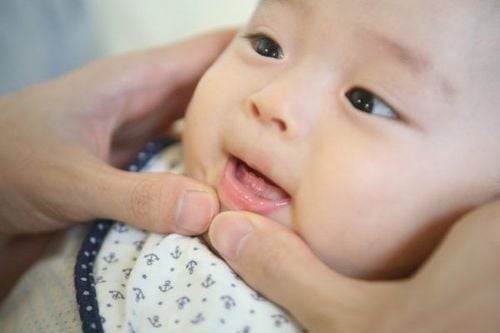
Hầu hết trẻ sơ sinh mọc chiếc răng đầu tiên khi trẻ ở độ tuổi mọc răng được 6 đến 10 tháng tuổi
2. What are the signs of teething babies?
Some babies are teething without any signs, but many parents report that their baby is uncomfortable. Common signs of teething include:Irritability or fussiness Drooling (may cause a rash on the face) Swollen gums Chewing or biting Refuses to eat Difficulty sleeping Rubbing face and ears
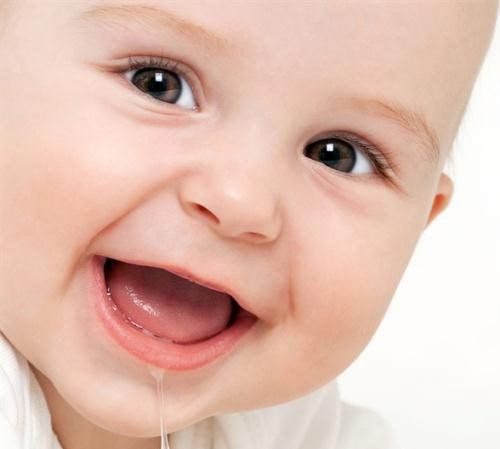
Trẻ chảy nhiều dãi, nướu sưng,.. là những dấu hiệu nhận biết trẻ có thể đang mọc răng
3. 3. Can teething cause fever, diarrhea, runny nose?
Some parents say their child also has a fever, diarrhea, or a runny nose right before the new teeth come in, but there's no scientific evidence that teething causes these symptoms. Some paediatricians say that although a child's body temperature can rise very slightly during teething and diarrhea is not a normal symptom.If your child has a fever along with other symptoms such as loss of appetite, vomiting, lethargy or diarrhea, see your doctor to rule out anything more serious.
4. How can I help my baby's teeth grow better?
Give your child something to chew on, such as a hard rubber teething ring or a cold washcloth that you have chilled in the refrigerator (not the freezer). Some experts warn against using necklaces when teething because they pose a choking and choking hazard. You can also use clean fingers to gently but firmly rub your baby's sore gums for temporary relief. Offer cold foods if your baby is old enough to eat solid foods. For example, your baby may find relief when eating yogurt or chilled apple sauce. The baby must be monitored to avoid the baby learning and causing difficulty breathing..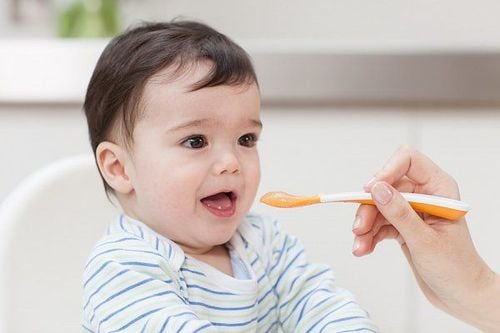
Cho bé ăn thức ăn nguội nếu bé đã đủ lớn để ăn thức ăn đặc
5. Are some pain relievers unsafe for babies?
If your baby is at least 6 months old and there is no way to help him. See your baby's doctor to prescribe an infant pain reliever. Some medications include acetaminophen and ibuprofen, but be sure to double check the correct dose with your doctor before giving any pain reliever to a child under 2 years of age.The following over-the-counter pain relievers and teething products are considered unsafe to give to your baby or toddler:
Aspirin : Do not give aspirin to your child (or even rub it on the gums). ) to relieve teething pain because it can lead to Reye's syndrome, a rare but potentially life-threatening condition. Homeopathic teething tablets and gels: Doctors advise against using these products as seizures, breathing problems, and other side effects have been reported in infants. and children. Benzocaine: Do not use topical gels or medications containing benzocaine. Some experts warn that the use of teething products can lead to methemoglobinemia, a rare and life-threatening condition in which blood oxygen levels drop dangerously low. The period of teething in children is a period when parents need to pay attention to dental care for their children, because it can affect the quality of their teeth later when they are adults. For children to be healthy and develop well, it is necessary to have a nutritious diet in terms of quantity and quality balance. If children are not provided with adequate and balanced nutrients, it will lead to diseases of excess or lack of nutrients, which adversely affect the comprehensive development of children in terms of physical, mental and motor skills.
Parents should supplement their children with supportive products containing lysine, essential micro-minerals and vitamins such as zinc, chromium, selenium, and B vitamins to help fully meet their child's nutritional needs. At the same time, these essential vitamins also support digestion, enhance nutrient absorption, help improve anorexia, and help children eat well.
Parents can learn more:
Signs of zinc deficiency in children
Micronutrient deficiency and failure to gain weight in children
Please regularly visit Vinmec.com website and update useful information to take care of your child. Take care of the baby and the whole family.





